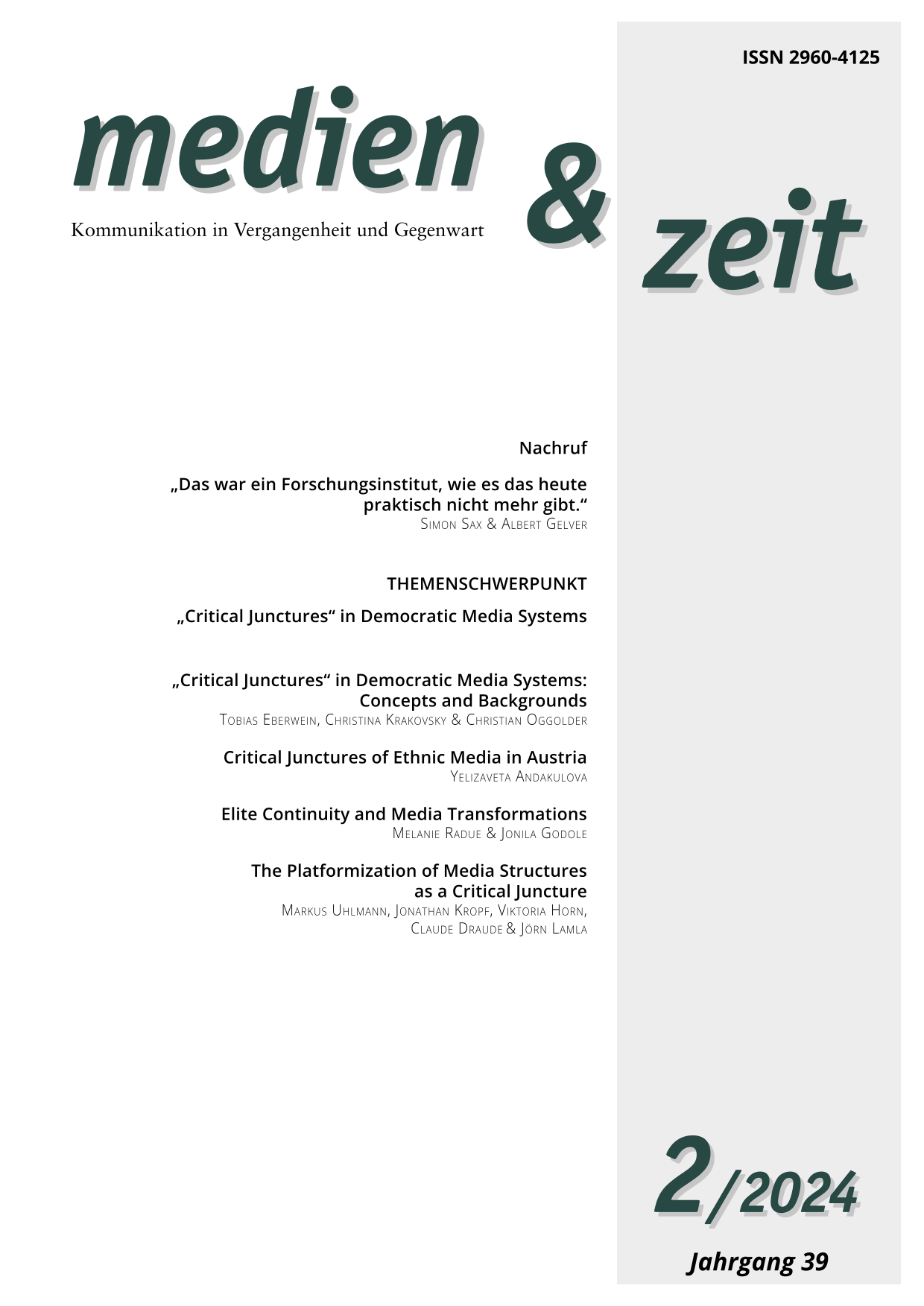Elite Continuity and Media Transformations
An Asymmetrical Comparison of Elite Continuity in Albania and Myanmar
Schlagworte:
Elite Continuity, Transition, Media Transformation, Commercialization, Albania, MyanmarAbstract
This study investigates the intricate dynamics of post-authoritarian media systems in Albania and Myanmar, utilizing Sparks’ (2008) concept of “elite continuity.” Our research employs an asymmetrical comparative approach to explore critical junctures – pivotal moments that significantly shape the evolution of media landscapes. We have two primary objectives: first, to unravel the historical pathways leading to the liberalization of media markets in both nations, and second, to demonstrate using Sparks’ framework how elite continuity evolves in these specific contexts.
Our study incorporates historical contextualization and qualitative analysis to examine the complex interplay between political transitions, economic interests, and evolving media systems. We explore how elite continuity manifests during these critical junctures, shedding light on the enduring influence of entrenched power structures.
Our findings reveal persistent patterns of elite continuity, emphasizing the shift from political to economic power. Despite differing historical and cultural contexts, both countries exhibit parallels in media transformations. This study enhances our understanding of the enduring impact of established elites and path dependencies within media context transformations.
Downloads
Veröffentlicht
Zitationsvorschlag
Lizenz
Copyright (c) 2024 Melanie Radue & Jonila Godole

Dieses Werk steht unter der Lizenz Creative Commons Namensnennung - Nicht-kommerziell - Keine Bearbeitungen 4.0 International.
Der Zugang zu den Artikeln in der Zeitschrift medien & zeit ist öffentlich und kostenlos, ohne Kosten für die AutorInnen und steht allen Leser*innen unter der Creative Commons Attribution-NonCommercial-NoDerivatives 4.0 Lizenz zur Verfügung. Die Rechte für die Beiträge liegen bei den jeweiligen Autor*innen (no apc) .



